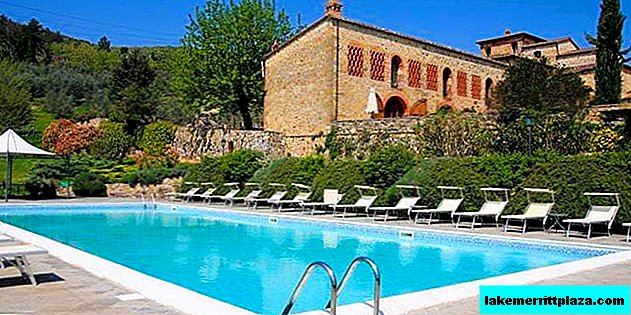Traditions and innovations are found on the pages of the new Internet portal Italify.com, designed to promote the brand "made in Italy"
Five engineers from Turin, united by a passion for Italian artisans, created a website offering to evaluate the work of various craftsmen, their experience and professionalism. At the same time, the developers guarantee the authenticity and uniqueness of the goods posted on the website, which can be sent anywhere in the world.
A year ago, David, Stefano, Alex, Fabrizio and Marco decided to create a virtual space that contains something more than just an easy-to-use online store. “Exhibiting at Italify means telling a story,” explains Davide Michelis. “We are not limited to product promotion: we are joined by craftsmen from various regions of Italy, and they become ambassadors of their native regions, their local culture. We ask them to talk about the materials used, the production techniques, some know-how and the intricacies of the work - about everything that is an important part of the culture of our country. "
Registration on the site is free, just as the sales commission is not provided for: “We are only at the stage of the project’s development and we can support the portal for free, since we all have a different job,” comments Mikelis. “Subsequently, we will advertise to interested masters. we’d like to introduce a commission in order to avoid an increase in prices for the goods offered. " It should be said that we are talking more about small-sized products, on the final price of which the delivery cost will not affect significantly, from jewelry to jewelry, from clothing to just cute trinkets.
So, to offer your products on Italify, you need to observe only two requirements: the product must be "made in Italy" and at the same time handmade, or at least not mass-produced.

Already today, over 150 masters are exhibited on the site, offering about 600 products, divided into 8 categories. On the eve of Christmas, about 6-7 sales per day were registered on the portal. “And on Facebook, the interaction between masters and customers has grown significantly, creating an interesting basis for discussion,” says David Mikelis. “The idea of focusing on Made in Italy works and people like it. This is an element that sets us apart from similar Internet resources.”
As you might guess, the Made in Italy brand attracts a large number of foreigners. In addition to the Italian version, the portal is also available in French and English. And the developers are now trying to sign agreements with courier services to simplify the delivery of goods abroad.
Actually, the growth of popularity abroad is one of the Italify team's tasks: creating an active community that will tell the whole world about products "made in Italy". Ideally, Italify should become a kind of guarantee certificate for the uniqueness and quality of products displayed on a virtual showcase.








